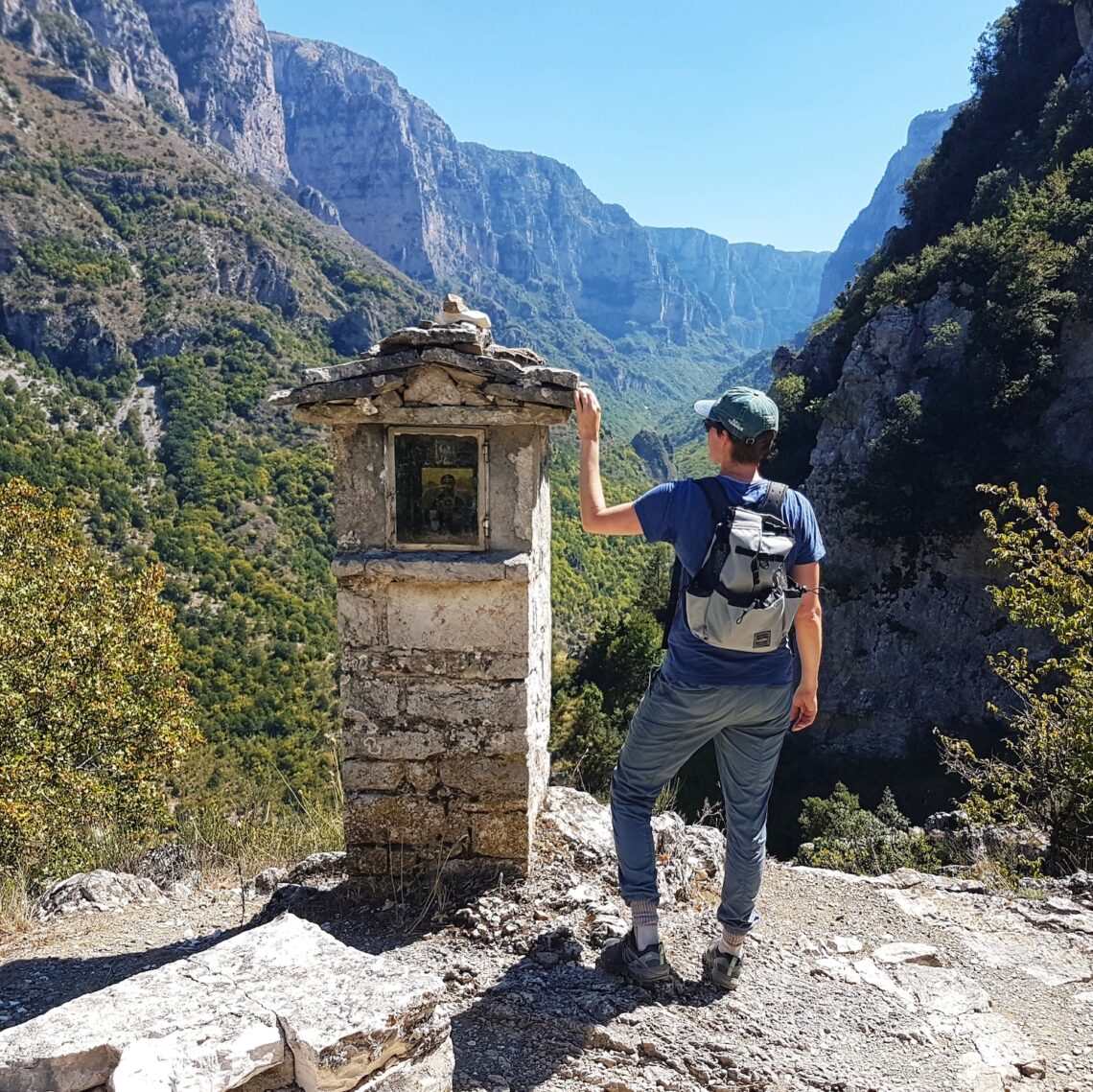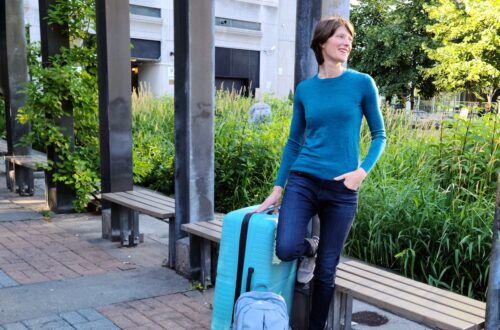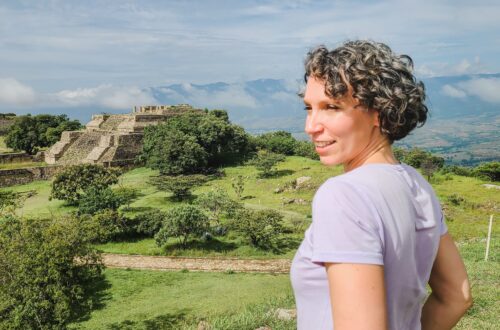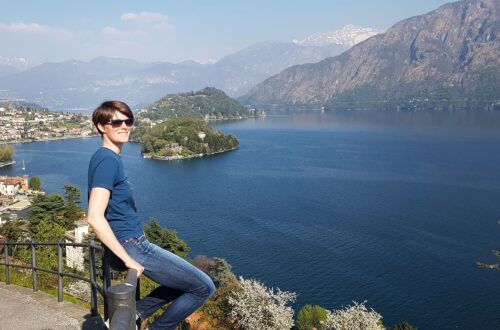
Money, Travel, Relationship + More
Q&A About Life After Retiring Early
As of October, it’s been a full year of early retirement. Last year, we said goodbye to our jobs and left Singapore after making our home there for six years. We began a life of full time travel with our two dogs, making our way through Poland, Ukraine, Turkey and Italy. That’s when COVID broke out and we ended up taking shelter in Canada for four months, which was really the only country that would take us. We’re finally back on the road again and into our second month in Greece.
In celebration of this unforgettable year of ups, downs, surprises and discoveries, we’ve opened the floor to questions from our audience. We’re answering it all, about our finances, travel planning, our relationship, what the future looks like and lots more. Of course, we received many more questions than we could possibly answer in one go. If there is anything else you really want to know, let us know in the comments below.
Financial independence
Let’s start with our journey to financial independence and this question from Danielle:
When you retired, did you set the date according to a dollar value you had saved up, an age or some other factor?
When we started working towards financial independence, we decided on a dollar value that we were working towards and not a specific age. The dollar value was based on the amount we expected to spend in the future lifestyle that we wanted to have.
We were very fortunate in that when we discovered the concept of financial independence and did the math, we realised that we were already very close to our target amount, just a couple years away. This was thanks to our lifelong habit of saving and investing.
Another question from gayhusbandsonfire:
How did you know that you were mentally ready for early retirement? Once you hit your FIRE number, was it hard to make the decision to plunge into retirement?
It was not too difficult to come up with our target number. It was extremely challenging for me in particular to make the decision to walk away from my career. I had invested many many years of my life into developing my career and climbing the corporate ladder. It was a huge mental shift to commit to starting a whole new life.
Two things helped me make the jump. The first was discovering a whole online community of other like-minded professionals who had done the same thing. The second was having a year of working every weekend and burning out and realising that there had to be more to life than just work.
For Gillian, once we had our financial plan in place, she felt ready to retire. We had tracked our spending for two years and done careful research on what our future costs would look like. Those things combined with our risk management plans gave her the confidence to step away from the office environment, where she had never really felt that comfortable to begin with.
From goals.wonders.fire:
With all the financial surprises that came up how did you both mitigate the extra expenses?
We certainly encountered a lot of financial surprises in our first year of retirement, including managing to blow through our emergency fund in record time. This was largely due to all the extra flying we had because of COVID and also living in high cost Toronto for four months instead of low cost Eastern Europe, like we planned.
Fortunately, we have buffer in our monthly budget to cover these costs. Every month, we give ourselves an allowance. This is an amount that goes into separate accounts and it’s for spending freely on whatever personal item we want to spend it on, without needing to check in with the other person. It can cover clothes or technology or special activities like scuba diving. And when we’re living in high cost countries like Canada, we can use it to supplement our accommodation budget or for anything else we might need.
How we plan our travel
From Danielle: What influences your decisions on where you go and how long you stay? Is it price or the desire to see a particular country etc?
From geekstreamers: Are there other criteria you have for selecting the countries you want to spend time in, such as safety or LGBT+ rights?
Since we had just spent six years exploring Asia, Australia and New Zealand, we knew that we wanted to make Europe our next stop and specifically the countries in eastern Europe that we had never been to before. After that, there are still many more places we’d like to go.
We don’t choose our destinations specifically because of price. However, we do find that countries that offer better value for money tend to be more attractive to us. That’s probably why we loved Turkey so much. The country has so much to offer and the prices happen to be low as well.
In terms of safety, we do consider travel advisories when we’re choosing the countries we visit and we also look closely at the neighbourhoods of our airbnbs. Of course, there are common sense practices to follow in any country such as not going out alone at night and being mindful as much as possible to not look too much like a tourist.
Also, after living in Singapore for six years, we’re very sensitive about respecting the local culture, especially when it comes to public displays of affection. As a same-sex couple, we choose to fly under the radar where that’s appropriate.
In terms of how long we stay, the next question is from Julie Travels who asked: When you talk about spending one month (or longer in the future) in a country, is that time usually split among different cities/destinations within that country, or do you usually rent an AirBnb as a base and do day trips and/or overnight trips to other places from there?
Our plan has always been to slow travel, spending a month or so in each destination. Now with international travel restrictions due to COVID, we plan to spend at least two to three months in each country.
While we’re in a country, we like to get some variety by spending time in different cities or towns. For example, here in Greece, we spent a month in Athens and then another month in northern Greece. We usually prefer to rent an airbnb for a full month so that we get the benefit of a longer stay discount. And then we can use it as a base for day trips.
Related to our length of stay in a country, Kimberly asked: How will you navigate your three month stay with Visa requirements? i.e. 90 day limit in Schengen countries.
As Canadians, we are indeed subject to the 90-day Schengen visa limit so we need to alternate between Schengen and non-Schengen countries. For example, after we had been in Italy for three months, we had to ensure that we stayed out of the Schengen zone for at least 90 days. Fortunately there are many countries in the Balkans that we’re looking forward to spending time in so we can rotate back and forth.
And a question from TJ: How far in advance do you feel you need to book your places given your long length of stay?
Before we started our life of full time travel, we were the kind of people who would book our trips six months or even a year ahead. Now that we’re more experienced with this lifestyle, we’ve learned the value of keeping things flexible.
During the off-season, we’re comfortable with booking just a few weeks ahead. Usually there will be a lot more inventory available and hosts will even be prepared to offer a discount. During the high season, we feel it’s important to plan a few months ahead to get a place that meets our needs. That said, due to the pandemic, we make sure to check out the cancellation policy in case of any travel disruptions.
Our travel gear
We had a couple people ask about our travel gear.
findyourfreedom: What did you pack that you didn’t end up using?
Tamar: what items you thought were essential at first that you ended up “ditching”?
This is really embarrassing but when we first set off on our adventure, it was a time when I was really into making my own natural beauty products and toiletries. So this included toothpaste, deodorant, lotions and lots of other products. This was a fun hobby for me but it was also about being more environmental and reducing waste.
When we initially left Singapore, I was carrying a lot of raw ingredients for making my lotions and potions. Over the subsequent weeks and months, I had to admit that it was totally impractical to drag around all these ingredients and gradually downsized with every move to a new destination. Now we just buy what we need as we go.
For both of us, further downsizing came with wardrobe refinement. The bulkiest item that Gillian carried around were her leather loafers that she was saving for a nice occasion that never came. Gillian finally admitted that they weren’t worth taking up the luggage space and she now has just three pairs of footwear: flip flops, hiking shoes and running shoes which are also her everyday street shoes.
From BWV: Healthy living is really important to both of you so are there any foods or cooking equipment or exercise equipment that goes with you?
We’ve discovered that there’s always something missing from every Airbnb we stay in so we carry a few things that make cooking a bit easier. This includes a chef knife, coffee filter, vegetable peeler, reusable cloth bags and food containers. Having those food containers helps us to bring healthy food along on travel days, which also saves money.
Life in retirement
Eva Maria asks: Do you have time to get bored?
Nae asks: What were your other major retirement goals besides travel?
As we talked about in a recent blog and video about our everyday life in retirement, we haven’t had a chance to get bored yet. After undertaking a goal setting exercise prior to our retirement, we have decided on three main activities that fill our time: hiking and getting out in nature with our dogs; our creative project, which is our YouTube channel and blog; and, of course, living as a local in each of the countries we visit.
Personal
Kimberly asks: How did you two meet?
Gillian was still in the Canadian military when we met. She had been recently posted to her hometown of Toronto. To celebrate her first weekend back, Gillian went to a bar on Friday and then to a club on Saturday. And wouldn’t you know it, I was also randomly at those places both nights. We started dating right away and got married a couple years later. We’ve now been together for 14 years.
Dogs
Of course, we’re a family of four because we have our two adorable dogs. Leah asks: Could you talk more about traveling with your dogs? The dogs are such a unique part of your slow travel story and I would love to hear more.
Huxley is 5 years old and Jasper is 4. They are male dogs, not brothers but best friends. We got them while we were in Singapore and were thrilled when we realized that they were small enough to travel with us in the cabin of many airlines, which makes this whole adventure possible.
It is a lot of work to travel with them because we always need to make sure that all our flights and AirBnBs are pet friendly. But the trade offs and extra expenses are worth it. They make every new place feel like home and help us follow a healthy routine, thanks to their four plus walks a day.
Future plans
Erin asked: I’d like to know how long you plan to be full-time travellers, especially now you’ve decided to slow it down even more.
Josh4peace asked: You mention the difficulty of living out of a suitcase. Do you think in time you will discover a place where you’d like to settle down in for a longer period of time?
Virna asked: Do you have any plans of settling down long term in one particular country?
To our minds, we’ve really only just begun this adventure. We’re planning to keep traveling as long as we enjoy it. We don’t have a timeline attached. That said, part of our mission is to discover places in the world where we’d like to stay longer or return to again and again.
The great thing about this chapter of life is that we don’t have to make long term plans. Back when we were working, life was so regimented that we needed to plan out every detail for months and years in advance. So we’re really enjoying our new life of letting plans evolve as we go.
And our final question from girl.on.fire.in.mn: If you could change anything about your first year in F.I.R.E, what would it be?
We wouldn’t plan so far ahead. We set off from Singapore with six months of travel planned in advance. And this means AirBnBs locked down and train and ferry tickets purchased. What we have learned on this journey is that it’s better to leave more room for spontaneity and opportunities that arise along the way. Instead of locking ourselves into an itinerary for six months, we’re now trying to let our plans evolve as we go.
This is not the easiest thing for either of us as obsessive planners but it’s definitely the right approach for this time in our lives.





7 Comments
Neil Mitchell
Fantastic Blog Post!
My wife and I are part way through selling everything we own and following your lead, travelling slow around the world. You are both great inspirations (not least, I am a massive fan of Toy Poodles lol).
Thanks and keep up the great work and travels 🙂
Neil
Our Freedom Years
Hi Neil – Thanks so much for your message! Always nice to hear from a fellow toy poodle fan. They really are the world’s best companions. It sounds like you have some exciting plans in the works…best of luck with your adventures!
Jacob
Hi Stephanie and Gillian!
How did you determine your FIRE number? Did you use the 3% or 4% drawdown rule?
I’m worried that if I use the 4% rule, I may run out of money. Maybe I’ll feel more comfortable and confident if I save up until I am able to satisfy the 3% rule.
I’d love to hear your thoughts.
Thank you!
Jacob.
Our Freedom Years
Hi Jacob,
Thanks for finding your way to our site! We were also worried about the same…would we run out of money if we stuck to the 4% rule? We cover this in a blog pot and video about managing financial risk in early retirement: https://ourfreedomyears.com/how-to-manage-risk-in-early-retirement/
Based on our own risk profile (e.g. very low risk!), we decided that we would be most comfortable with a two-phase approach. In the early years of our retirement, we’re using a safe withdrawal rate of less than 3%. As we grow older and are ready for a more comfortable lifestyle — or have greater expenses — we can then move up to 3 or 4%.
Hope that helps! We have more food for thought on this topic in our free 7-day course https://bit.ly/3eBcvy4
Pingback:
Pingback:
Pingback: